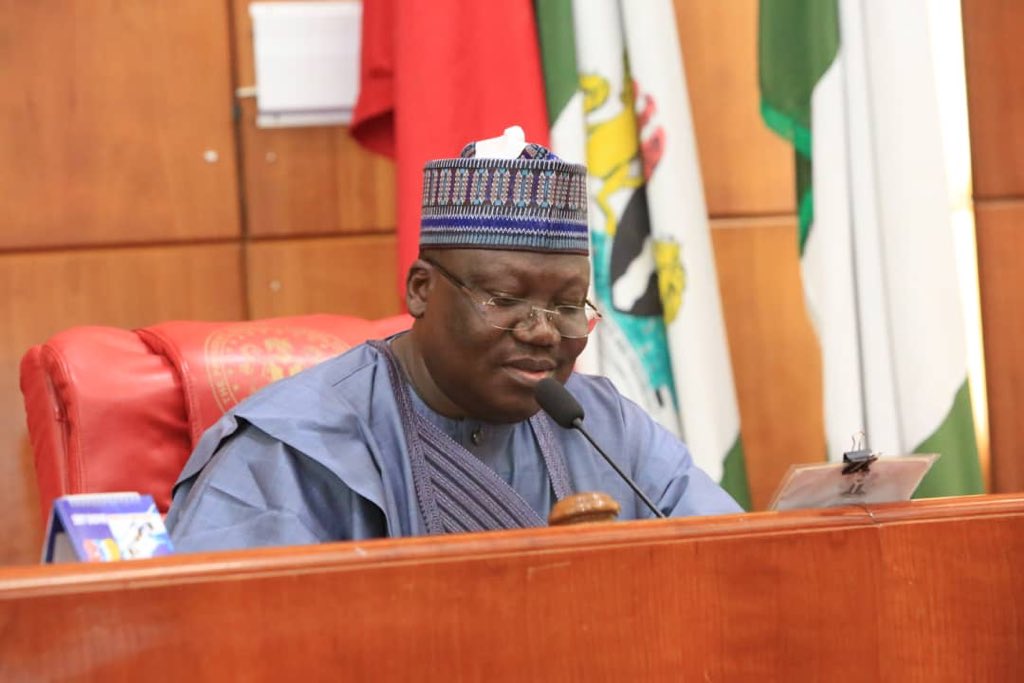Ahmad Lawan, Nigeria’s Senate president, has decried the glowing population of Nigerian children who are currently out of school, which he said stood at 10 million.
Lawan said this on Tuesday, July 2, 2019, while reading his welcome address at the plenary.
He said that the issue of children dropping out of schools was a concern to him as a former university lecturer and to the 9th Senate, saying that efforts would be made to address the challenge.
“If there is one issue that is dear to me and which we must all take very seriously, it is that more than 10 million of our children are out of school.
“As a former lecturer who has also in the past chaired the House of Representatives Committee on Education, I subscribe to the view that all children, no matter where they live or what their circumstances, have the right to quality education.
“Even though primary education is officially free and compulsory, over 10 million of the country’s children aged 5 – 14 years are out of school.
“This is a challenge for us in the next four years.
“I am well aware that the problems of our country are quite enormous but they are not insurmountable.
“If we all work together as members of the same government, with different roles, we will achieve our goals to better the lot of the Nigerian people.’’
Lawan also said efforts on how best to tackle growing inequality; security challenge would form the legislative agenda.
He said the Senate would also consolidate on the oil sector reforms started by the 8th assembly.
He said the Senate would help the executive to reinvigorate the war against corruption with necessary legislations.
“I intend to work closely with President Buhari in the interest of Nigeria without compromising the integrity of the National Assembly as an independent arm of government with oversight powers.
“As lawmakers, one of the powerful tools we have for our work is the power of oversight which is meant to enhance transparency and accountability.
“In exercising these powers, we will not only review, monitor and supervise projects being implemented by the executive, we will critically examine them vis-à-vis the cost and whether they align with our national aspirations.
“And we will follow the progress of these projects right from conception to when they are finally delivered to the people, but we will do so with every sense of responsibility.
“The system of checks and balances which we practice in Nigeria today was enshrined to safeguard the values of justice and the rule of law and deliver public good.
“Therefore, in a season when majority of Nigerians are more concerned with outcomes that reflect their concerns, the best way to serve that interest is through cooperation and collaboration.
He said given the dwindling resources amidst rising population, the executive and legislature must work together to deliver essential services to Nigerians.
“So, in exercising our mandate as lawmakers, we must at all times, and in all circumstances, be guided by how our action will positively impact the greater majority of our people.
“Each of us, as lawmakers, must also resolve that the exchange of views, especially within this hallowed chambers, will be constructive and that we will respect one another.
“On my part, I pledge to lead in a bipartisan and unifying manner.’’
The News of Nigeria, NAN, reports that the Senate also constituted a 13-member ad-hoc committee to fashion out a legislative agenda for the senate.
The committee, which has two weeks to produce a legislative agenda, has Sen. Adamu Alero representing Kebbi Central as Chairman.
Other members of the committee consists of Senators’ Chimaroke Nnamani, Ibrahim Baru, Abdulfatai Buhari, Aisha Dahiru, Uche Ekwunife, Ifeanyi Uba, Olubunmi Adetunmbi, Istifanus Gyan,among others.







